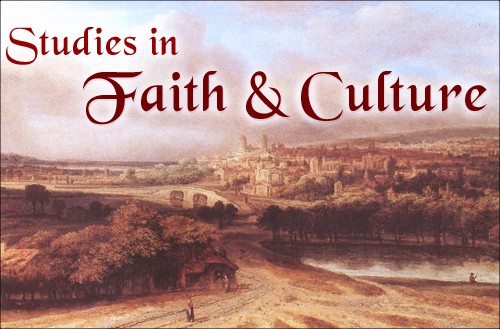The understanding of culture is so important for the faith today
 The gift of faith is given by God to man through evangelisation. Thus, individuals must be evangelised within their cultures and never be treated as if they had no culture at all. Besides, faith is an integral element of evangelisation. If the culture of a people destined to embrace the Catholic faith is not deeply studied before the process of evangelisation is taken in hand, the result would be disastrous.
The gift of faith is given by God to man through evangelisation. Thus, individuals must be evangelised within their cultures and never be treated as if they had no culture at all. Besides, faith is an integral element of evangelisation. If the culture of a people destined to embrace the Catholic faith is not deeply studied before the process of evangelisation is taken in hand, the result would be disastrous.
Those people who in the past were robbed of their culture preserved their traditional beliefs by giving them an outward appearance of Catholicism in the syncretic cults which still exist in Brazil and Haiti. Theologically speaking, this was no evangelisation at all but only an expansion and implantation of European culture.
In the encyclical Redemptoris Missio, Saint John Paul II expressed the need for a ‘new or second evangelisation’ in countries where many faithful have lost their faith or who no longer consider themselves Christian. The former Pope was not only foreseeing the harm caused by secularism in the technological cultures of the West, but also the position of countries in which Christianity had not made significant progress. He stressed the ‘supreme duty (of Catholics) to proclaim Christ to all nations.’
People who have never known Christ but who are people of good will are definitely influenced by the activity of the Holy Spirit and so they are disposed to be sensitive to this activity and to eventually accept the Gospel in their culture.
The majority of people living in a secular postChristian society who either reject or ignore Christ, have had their culture gravely impoverished for they are obviously living with a modern, technological culture which is unchristian, if not altogether against Gospel principles. However, the Holy Spirit is also definitely at work here.
Western technocratic culture is a threat to Christianity, a grave obstacle to evangelisation and faith and to the development of the Church in its existence with different cultures all over the world.
Success in spreading the faith in the modern world depends on Rome’s abandoning its desire for uniformity in all churches in the nonWestern world with so many different cultures. The attempt to impose a Western model on the world may be the primary cause of endangering the World Communion of the Catholic Church, as this may cause a ‘crisis of unity’ as indicated by the Jesuit Fr Pedro Arrupe in the 1977 Synod of Bishops.
Christianity’s growth depends on its taking root and this necessitates the relinquishment of Western monoculture. Christian universality must never be identified with Western cultural forms – the approach of the preConciliar Church – which favoured a monolithic, uniform and Western Christian culture.
The Church is in constant need of reformation and renewal because its members are sinful, by nature. However, it is the Church’s desire to enter into other cultural worlds, in other systems of human thought and behaviour and to uphold them in the power of the Gospel, which is the power of love, truth and justice. Through the power of Christ’s love, these cultures can attain a new and more glorious life.
The spreading of the faith has been historically impaired and faith itself harmed by violence through colonial domination and oppression. It had also been made subject to materialistic and political motives. All this has rendered necessary the ‘new evangelisation’ to face the changing realities of human cultures and conditions, especially when Christianity is replaced by the secularism of a technicallyoriented world.
Evangelisation is never complete – it is the ongoing task of the Church and of all the faithful.
Evangelisation and the spreading of faith without dialogue is hollow and fruitless and consequently, they demand a deep respect for all different human cultures while at the same time remain faithful to the Christevent.
Christ’s great commandment of universal love coupled with the great commission ‘Go make disciples of all nations’ (Mt 28: 19; Mk 16: 15; Lk 24: 47) provide a sound theological basis for the spreading of the faith.
The dialogue with culture usually involves a dialogue with other faiths. So an encounter has to be made with other religions. The Gospel is not opposed to any culture because the message of the Gospel would bring to all different cultures a genuine liberation from all disorders caused by sin.
Cultures are not diminished by their encounter with Christianity, especially today when the Gospel comes into contact with countries which were once beyond Christian influence.
In its efforts to spread or to strengthen faith, the Church today must have the changed missionary realities of the present day, recognising the existence of cultural pluralism and equality. Christ’s commandment of love excludes any desire to impose alien (in our case, Western) cultural traditions upon people or to act against their right to culture.


0 Comments